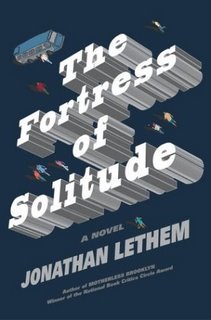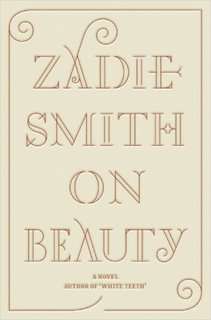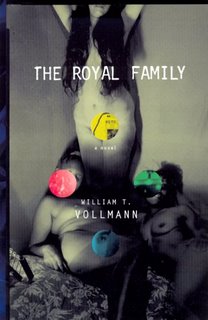Today, August 31, 2006 marks the end of the first two-thirds of the decade. It's been a crazy 6 years and 8 months!
(does anyone know html code for putting the "infinite" horizontal line over the 6 so I don't have to put so many trailing sixes after the decimal to indicate the endless beauty of 2 divided by 3? If you do, please comment)
Top 6.666666 Books of the First 2/3 of the '00s
Number 6.666666. Jubilee World by Me (first ed., 2003)
I'm not doing this out of ego or even spite. Dude can write. I'm giving this collection of short stories and poems the coveted/feared 6.666666 spot because it is an unpublished (but available!) work. In other words, it's not really a "book." It's only "two-thirds" of a book. Still, there's a lot to be savored in its pages. In the title story, the intersecting circumstances of transgendered nurses, the first George Bush, and the guy who steered the Exxon Valdez reveal a lot (perhaps too much?) about America. In Little Big Junebug, the author uses the odd vernacular of rural southeastern Pennsylvania to tell a story of friendship and wonder. In the poem Not Without My Daughter, a (half) Egyptian childhood is recalled, with nostalgia, regret, and the thing that is both nostalgia and regret. Finally, an early version of The Caketopper demonstrates what can happen if one doesn't have an ending. Or a beginning really. Overall, a great read.

Number 6. Chronicles Volume One by Bob Dylan
Bob Dylan is a fine singer and songwriter. But he really shines as a storyteller. I used to joke that Chronicles was a great "novel," that much of what is passed off as "fact" seems apocryphal or, at the very least, decoratively recalled. Upon further thought, I think what he wrote is pretty much true. And the delivery is perfect, from his heartfelt recollection of studying Civil War history in the New York public library to his richly detailed stories of his college years, when he lived in the Dinkytown section of Minneapolis (where most of number 6.666666 was written) and visited the homes of crusty Midwestern folkies. The extended section on the process of recording his eighties album Oh Mercy is fascinating, both for the details he leaves in and the secrets he leaves out. (that last sentence is proof of why I wouldn't make a good book reviewer.)

Number 5. House of Leaves by Mark Danielewski (2000)
I barely remember the story, the detail of this book. I do remember how I couldn't stop reading it, how it creeped me out and confused me, and how I admired its audacity. Plus, Mark Danielewski expertly capture the states of dreams, fearful wakefulness, and Virginia. And when he autographed the book at a reading I attended, he was extra nice to me and everyone else. That counts for something. And he had blue hair. His new book comes out in the fall.

Number 4. Fortress of Solitude by Jonathan Lethem (2003)
This is one of those choices were nothing but sheer talent pushes a novel from the level of "serviceable" to "outstanding." Sure, Lethem annoyingly named one character Dylan and another Mingus but this otherwise benign coming-of-age novel with colorful characters turns into something special with enough passages like this one:
- It was entirely possible that one song could destroy your life. Yes, musical doom could fall on a lone human form and crush it like a bug. The song, that song, was sent from somewhere else to find you, to pick the scab of your whole existence. The song was your personal shitty fate, manifest as a throb of pop floating out of radios everywhere.

Number 3. On Beauty by Zadie Smith (2005)
I always like a good college novel. As with #4, mass swarms of writing talent guide this book. At its center are, moreso than any other book on this list, fully realized but not always recognizable characters. The plot may be nothing but set piece after set piece but that's what college and family and marriage are anyway. (And to the woman who borrowed the book from me... you know who you are... you're up in Santa Cruz now - keep it, read it. It'll help.)

Number 2. The Cheese Monkeys by Chip Kidd (2001)
I first went to college in the mid-80s. This book was set in the late 50s. But, based on Chip Kidd's age and the story's sensibility, it might as well have been set in that hallowed fall of '86, where the snow came early and the leaves died late. This is a deceptively simple story - young man learns about love, sex, art, and himself (in that order, both forward and reverse). The author is more well-known as a book jacket designer than he is as a novelist. But he can write, perhaps better than he can design. And this is the only book on this list that I've read twice. A third time is likely. That counts for something.

Number 1. The Royal Family by William T. Vollmann (2000)
The world's best and most prolific writer tells a daring, devastating, funny, and heartbreaking about (but not only about) a man's search for the mythical "Queen of the Whores" amidst the pre-dotcom-boom beautiful scourge that was San Francisco, with its desperate-but-not-dead prostitutes, lethal "hotels," and dirty/pretty streets. Mix all that up with unrequited love, virtual reality, biblical overtones, sibling rivalry/rage, hobo life, and the scarily named (but perfectly so) Dan Smooth and you have the best book of the 2/3 decade. For "proof," an excerpt:
- Dark tracks of ecstasy down which slid blinking lights and fluffy lights, rays of warmness on cold tracks; these carried Tyler and Brady past brick hofbraus and pavement-holes. Ahead, a police car turned the corner. Pizza lights marked the edge. Then all the brightnesses started getting skinnier. White-lit arches launched them down long white slides tulipped with lamps, and they passed the Peacock Club, outside of which the first whore of the evening stood fussing with her science-fiction garter belt.
1 comment:
Lovely list. Are you ready for this...?
Jason's Best 6.66 Books of the First 2/3 of the 2000's (That I've Read)
Number 6.66
Pastoralia by George Saunders
A stunning real fantasy of a hopeless future. Saunder’s use of dramatic irony and humor to punctuate the sadness and tragedy of the protagonists life makes this novella a modern-day classic.
Number 6
Austerliz by W.G. Sebald
Like resting inside the brain of a post-War child of Europe, this novel is required reading for everyone who can’t remember where they came from.
Number 5
The Amazing Adventures of Kavalier and Clay by Michael Chabon
Magic, comic books, Antarctica, and a heaping spoonful wonderful of non-observant Jewiness, mixed in with some early queerality, and you have Chabon’s masterpiece.
Number 4
Sin Killer by Larry McMurtry
This first book in the Barrybender four part series. He probably could have published all four as one massive novel, but no, we get the story in installments, and this installment is the best. His prose is workman-like, almost affectedly spare, and his narrative is sharp and brutal, no character is safe, and that realization makes this novel uniquely suspenseful.
Number 3
The Life of Pi by Yann Martel
Yeah, it's good...
I'm out of gas. This blogging is hard.
Post a Comment